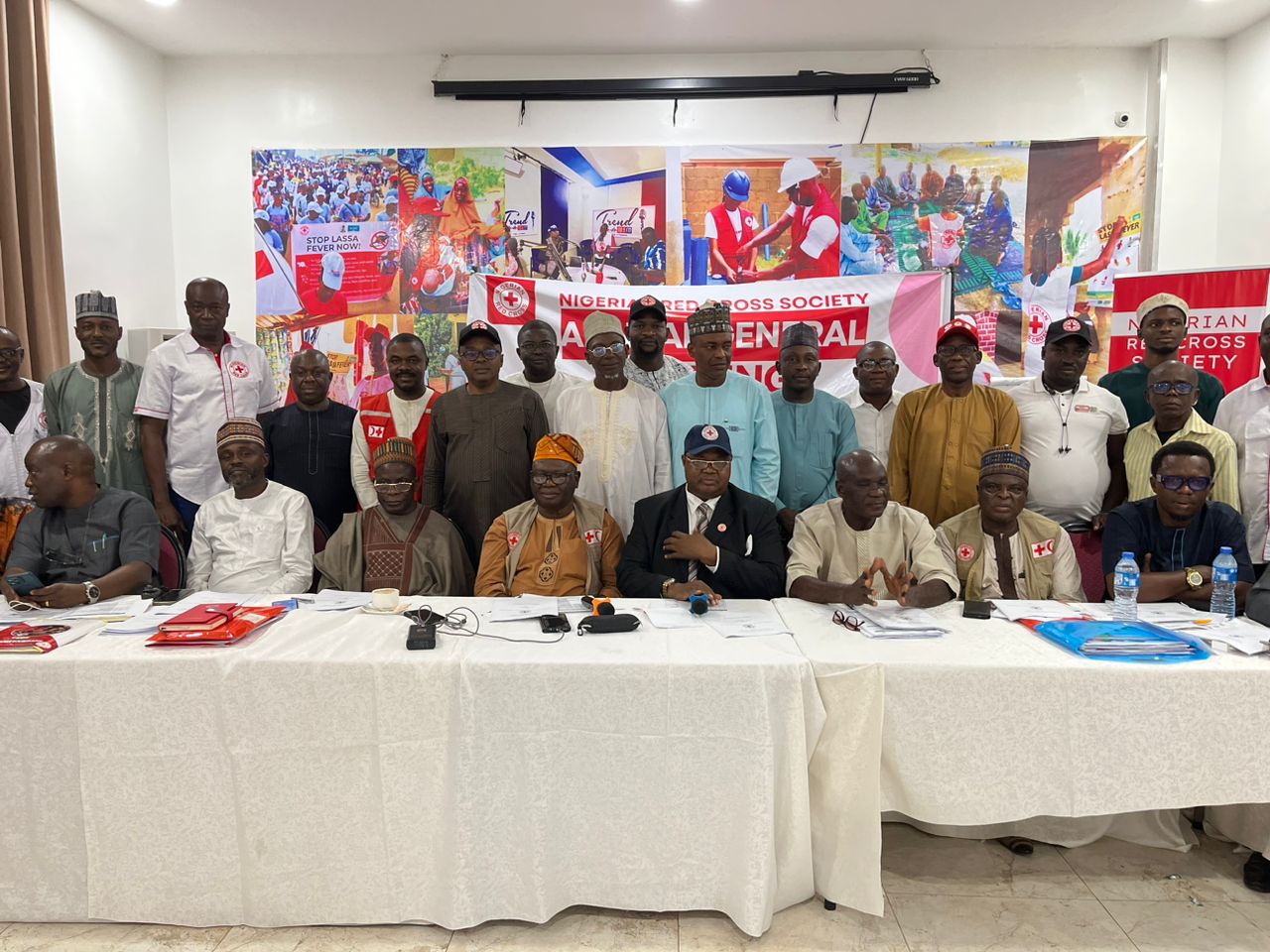The Nigeria Red Cross Society (NRCS), in collaboration with the World Food Programme, received a $2 million cheque from the Federal Ministry of Humanitarian Affairs and Poverty Alleviation in response to the devastating floods that affected several states in Nigeria in early 2024.
Prince Oluyemisi Adeaga, President of the NRCS, made this announcement during the society’s Annual General Meeting (AGM). He explained that the funds were used to distribute food items to households in Adamawa, Anambra, Oyo, Kebbi, Kogi, and Rivers states to provide immediate relief to flood victims.
He stated, “We also drilled 12 water boreholes to ensure access to clean water, thereby reducing the risk of waterborne diseases in selected communities. In July, our efforts culminated in extensive relief operations in Adamawa and other affected states, which brought visibility and urgent aid to thousands of families.”
Additionally, Adeaga highlighted the NRCS’s response to the MPOX outbreak, which affected 26 states and the Federal Capital Territory (FCT). In collaboration with the Norwegian Red Cross and the Nigeria Centre for Disease Control (NCDC), the NRCS launched a Training of Trainers (ToT) program aimed at enhancing preparedness and response across the country.
In September 2024, heavy flooding due to the sudden release of water affected more than 50 percent of Maiduguri and its surrounding areas. The NRCS swiftly organized search and rescue operations, providing immediate relief. Through collective action, the society raised N6.7 million within three weeks to assist those affected by the floods. “We also returned to Maiduguri to distribute relief items worth N100,000 each to 1,850 households,” Adeaga added.
ALSO READ:Catholic firm disbursed $3m loan to Nigerians in five years — MD
In addition to the flood response, Adeaga emphasized the NRCS’s N2.5 billion fundraising campaign, aimed at addressing hunger and malnutrition among Nigeria’s vulnerable populations. While not all the funds were raised, partnerships were formed with various institutions, which have pledged support for future campaigns in 2025.
In a bid to foster continuity and engage young people, the NRCS held its first-ever international youth camp, coordinated by the National Volunteer, Gender, and Youth Adviser, Mr. Sidney Osawaru.
The camp, which was officially opened by Delta State Governor, Elder Sherriff Oborevwori, took place at the Federal Road Safety Corps (FRSC) Training School in Agbor, Delta State. The Governor emphasized the importance of youth engagement in shaping the future of the Nigerian Red Cross Society.
“The AGM is not just an administrative necessity—it is a platform to chart the future of the Nigerian Red Cross Society,” Governor Oborevwori said. “We will hear from our leadership, analyze reports, and discuss strategies to build on this year’s successes.
This AGM embodies our core values of humanity, impartiality, neutrality, independence, voluntary service, unity, and universality.”
Similarly, Hopewell Munyari, Operations Manager of the International Federation of the Red Cross and Red Crescent Societies (IFRC), outlined the organization’s support for the NRCS. He emphasized that the IFRC’s Strategy 2030 focuses on five key areas: climate change, disaster response, health gaps, migration, and values, power, and inclusion. Munyari reiterated that the IFRC is working closely with the NRCS to address these priorities.
“We want to see the Nigerian Red Cross grow in terms of their responses to natural disasters, becoming more efficient and faster in their approaches,” Munyari said. “We also want to see more engagement with other partners, including governments, and more funding to support their initiatives.”
Munyari stressed the importance of local support for the NRCS, encouraging every Nigerian to contribute. “The Nigerian Red Cross has a donation page on their website, and we encourage everyone to contribute whatever they can,” he said.
In terms of funding, Munyari noted that the NRCS is forecasting around 60 million Swiss francs for 2025. He emphasized the need for a significant portion of this funding to come from local sources. “With the support of the Nigerian people, the Nigerian Red Cross can achieve great things,” he concluded.
The Nigerian Red Cross Society has been at the forefront of responding to humanitarian needs in Nigeria, providing health, safety, and dignity to vulnerable communities across the country.





 and then
and then